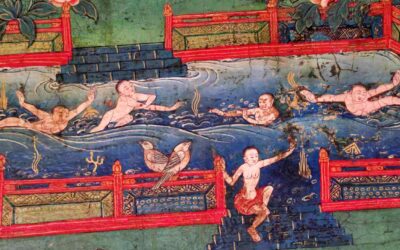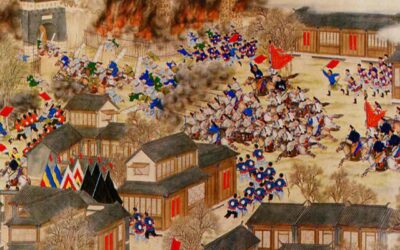The book “Hanzi for HSK 1-3” now available in Greek language
This April, the translation of my book Hanzi for HSK 1-3 has been published in the main digital bookstores in Greece. The Greek version of this book, from the pen of Stefanos Karampalis, has been one of the most complex of this series, because given the different structure of the Greek script, we have had to solve together numerous challenges, ranging from the explanations contained in the images, to the design of an original cover. With this translation the book is now available in 7 languages, including English, Spanish, French, German, Italian, Russian, and Greek.
A must-have book for beginners in the Chinese language.
The book. Originally published in English for Live the language Mandarin School, it was the first attempt to present English-speaking readers with a simple version of my theories regarding the teaching of the Chinese characters. It was important for me to understand that many students need a gradual learning of Chinese writing, not only in the presentation of the lessons, which I always tried to make accessible to all levels, but in the sheer physical presentation of the book, with reduced size and price that allows the student to face a definite and reasonable learning task.
This book, a version for students of the basic levels of Chinese of my more complex books on the theme, Chinese Characters, an easy learning based on their etymology and evolution, presents readers with a simple way to learn how Chinese characters were formed and reached their present meaning. It has been recognized by readers as a great help in the study and memorization of Chinese characters, because learning their meaning according to their components, the student is sure to advance with firm steps in the knowledge of their writing.
Since this work contains only the little more than 600 characters necessary for the exams of the first three levels, making it a little difficult to maintain the novel system of study based on the families of characters, we have included some characters that are not so frequent, in order to give a clear sense to the whole work and make it an introduction to more advanced studies.
The authors
Pedro Ceinos Arcones is a Spanish writer with numerous works published in Spanish and English. Author of the posts on this website, his publications include Abya-Yala, scenes of an Indian history of America, A Short History of China, The Tiger in China: image and Symbol, or Matriarchy in China. His work could be characterized by his interest in unconventional topics related to Chinese culture and those of its minorities and his efforts to present some aspects of Chinese culture from a different angle. This is the second of his books, after Legends of the Goddess mother, translated to Greek.
Stefanos Karampalis was born, raised and currently resides in Greece. He works as an English-Greek translator and copywriter. To date, he has attended 5 translation-related programs from the University of Athens, a comics translation seminar and an 1-year intensive program of the School of meta|φραση. He is a member of the Panhellenic Association of Translators. In total, he has translated almost thirty e-books from English into Greek, and the number is growing. One can learn about him and his work on his website.
The book was published by Tektime, an Italian publishing house specialized in the translation and distribution of original works. The book is available in the main ebooks bookstores, such as Kobo.
Last posts
Most Frequent Scenes from the Life of the Buddha in Tibetan Art
Most Frequent Scenes from the Life of the Buddha in Tibetan Art In fact, only a few moments are repeated very frequently in Tibetan paintings. In some versions there are eight—an auspicious number for Tibetans, corresponding to the Noble Eightfold Path and the eight...
The Dog as Psychopomp in China
The Dog as Psychopomp in China One of the oldest human beliefs was that after death there existed an immaterial part of the person—later called the soul or spirit—that did not disappear with the body. Its origin may lie in the “presence” of the dead in dreams,...
An ambitious project to rewrite history
An ambitious project to rewrite history. It is what we see in Lhamsuren Munkh-Erdene, The Nomadic Leviathan. A Critique of the Sinocentric Paradigm. Brill. Leiden. 2023. Now free to download in the publisher’s webpage. This book is a critique of a theoretical paradigm...







